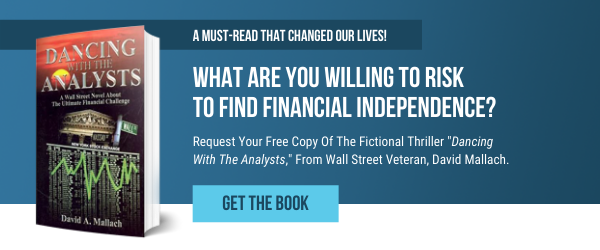AI-Generated Summary: The article argues that bonds are not a good investment for generating retirement income, despite their perceived safety. The author contends that in all three interest rate scenarios—rising, stable, or falling—bonds fail to meet an investor's long-term financial goals, primarily due to the impact of inflation or reinvestment risk, which can ultimately force a drawdown on the principal investment. The firm, Beck Bode, suggests an alternative strategy to grow income and reduce the risk of outliving savings.
We’re regularly asked about investing in bonds. Currently, we hear, “Are bonds a good investment in 2025?” This is usually followed by questions about the market or interest rates.
When markets are turbulent, it’s normal for investors to want to protect their investments. Let’s face it: who wants to lose money? We all crave certainty; it seems to be part of our wiring. But just because we crave it doesn’t mean it’s good for us.
We crave lots of things that aren’t necessarily to our benefit: potato chips, another beer, that cupcake after midnight. We crave comfort and safety in every aspect of our lives. Nowhere is this more evident than in our finances.
Bonds have always been the conventional approach to satisfying a client’s need for safety (and the advisor’s need to keep clients comfortable and not “rock the boat” emotionally). You may be surprised to discover that this traditional approach to generating portfolio income is disastrous for a lot of people, though it may not look disastrous if you’re looking from the outside.
Now, let’s answer that question.
Is Now a Good Time To Buy Bonds?
When you look at bonds on the surface, you’ll notice they pay a fixed rate of interest over time. High-quality bonds are marketed to carry implied protection of principal.
Keep in mind that bonds are interest rate sensitive, meaning their prices tend to fluctuate when interest rates change, but it's a widely held belief that as long as you hold your bond to maturity, you don't have to worry about your loss of principal. That's something I'd agree with.
A very common strategy that traditional financial advisors practice is building out a laddered bond portfolio, which is the act of buying multiple bonds at the same time but for different maturity dates. Say you buy 10 bonds, and they mature in 2026, 2027, 2028, and so on. The idea is to minimize the interest rate risk on your future income by not putting all your eggs into one basket.
This sounds reasonable enough, but if the most significant objective of investing is to generate income for retirement, the very nature of bonds makes them a poor choice for this goal.
The Disadvantages of Bonds
Let’s look at where our desire for safety may, unfortunately, lead us to a place that’s detrimental to our finances. When we talk about the safety of principal in an investment context, make no mistake about it, we are talking about bonds.
You can sugarcoat it with your choice of euphemisms: call it “safety,” “security,” or “downside protection.” All these softer phrases and their equivalents point to an investment strategy that includes bonds. In fact, I’d go as far as to say that all bond investment strategies are dangerous to your financial health.
Why? Bonds just won’t have the payoff you need to reach your financial goals.
Are bonds a good investment now? Simply put, we don’t suggest investing in bonds.
Implications of Investing in Bonds
If you’re still thinking that bonds are a good investment right now, we have three different scenarios for you to consider. Either interest rates rise, interest rates stay the same, or interest rates fall. What are the implications of each of these for the bond investor?
First, let’s conjure up the investor. I’m thinking of clients I work with who are retired, about to retire, or thinking about it anyway. Most likely, they’ve had some sort of “liquidity event,” meaning they have sold a business or investment property. Sometimes, they have retired and are rolling over their 401(k).
What they all have in common is the desire to reap the rewards of their investment. What they also have in common is fear. They struggle with how much risk they are willing to take with their principal.
I get it. You don’t want to work anymore, so you want to invest to provide yourself with sufficient income for the rest of your life. Having a stable source of income is obviously attractive, and the need for security cannot be overstated.
Bond Investments Scenario #1: Interest Rates Go Up
A moment ago, I mentioned the three possible scenarios when you invest in bonds. Scenario one is that interest rates rise.
If interest rates rise, on the surface, this looks like good news for the bond investor. You could be receiving more income each year than you originally expected. But there’s something problematic going on, too, because rising rates are a fundamental indication of inflationary pressure in the economy.
Any apparent increase in your bond portfolio income is quite possibly offset by inflation. Therefore, you might actually lose purchasing power, even though you are receiving a higher amount of income over time.
Bond Investments Scenario #2: Interest Rates Stay the Same
Scenario two is that interest rates stay the same. This scenario is the least probable because interest rates are always moving. It also assumes that in the future you would not need a greater amount of income than you do right now.
Unfortunately, it's safe to say that everything costs more over time.
Let's even assume that current inflation stays constant. Despite accounting for this, our day-to-day expenses are not fixed. Electric bills, car payments, cable, gas, food, and more — everything tends to go up in price. But your income from your bond portfolio remains fixed. Fixed income, rising expenses: that doesn’t work, either.
Bond Investments Scenario #3: Interest Rates Fall
Scenario three is that interest rates fall. In this scenario, the most direct impact to you is that as your bonds come due, the options for re-investment are at lower rates. You will now receive less income than when you first purchased the bond.
Red flag.
What happens now if your portfolio income suddenly isn't enough to meet your needs? How do you fill that shortfall?
Well, you're in a portfolio that's supposedly guaranteed, but when that bond comes due or perhaps the bond hasn't even come due yet, and you need more funds because the income being produced isn’t enough to satisfy your lifestyle, you actually have to sell the bond. You have to dip into principal, and it's at this point — even though you're in a principally protected investment — that you've failed. The fact that you have had to dip into your original investment means that the investment itself has not yielded to your needs or expectations.
To add insult to injury, and this is particularly true for corporate bonds, issuers typically have call provisions written into the contract. That means the issuer can force you to redeem your higher interest rate paying bonds early so they can now issue or reissue new bonds at the prevailing lower interest rate. Good for them, not so good for you.
What is the Future of Interest Rates?
When you look at these three interest rate scenarios, whether interest rates go up, go down, or stay the same, you quickly realize that for an investment that is widely considered to be low-risk, bonds are anything but!
The big question is: where do you think interest rates will be five or 10 years from now? Your guess is as good as mine, and I wouldn’t bank my retirement — or yours — on a guess. A better question is: what is a better way to go about it?
At Beck Bode, we already know if you have a strategy that's properly executed, you can grow your investment income over time and greatly reduce the risk of outliving your savings. No question about it, but just not with bonds.
If Bonds Are Not a Good Investment, Then What Is?
You chose to read this article because you had a concern or curiosity about investing or market volatility — we totally understand. We’ve made it pretty clear that the disadvantages of bonds mean they are not going to help. So what will?
There is another way to invest, and you have landed at the right place to learn about it. How we look at investing is simple to understand — no finance degree required — and it’s fully transparent.
To learn more, you may want to read about the characteristics of successful investors, the three questions that every financial advisor needs to be able to answer, or perhaps you simply want to talk it all through with a human being.
Ben Beck, CFP® is Managing Partner & Chief Investment Officer at Beck Bode, a deliberately different wealth management firm with a unique view on investing, business and life.

 Benjamin Beck, CFP®
Benjamin Beck, CFP®